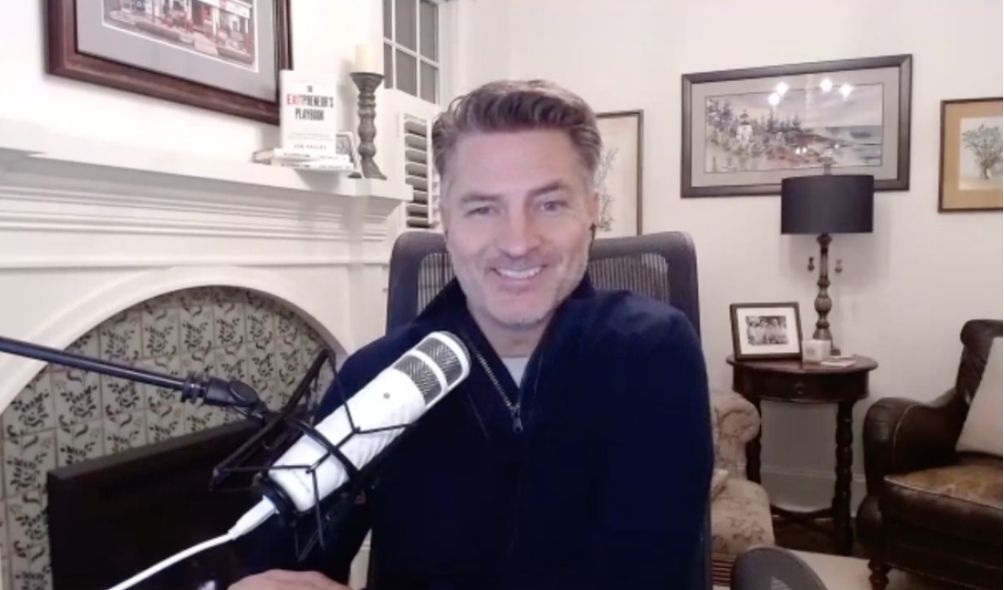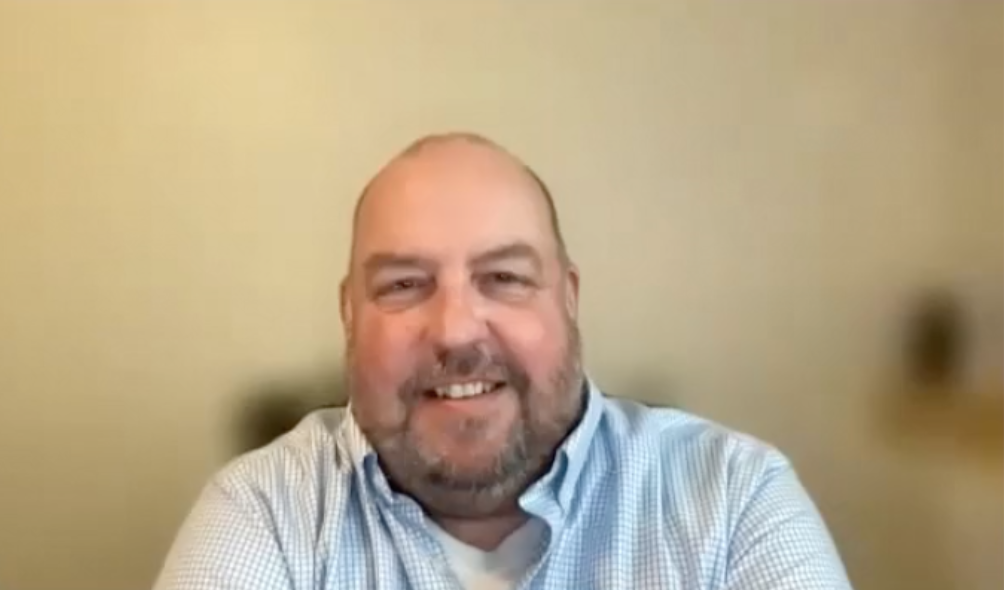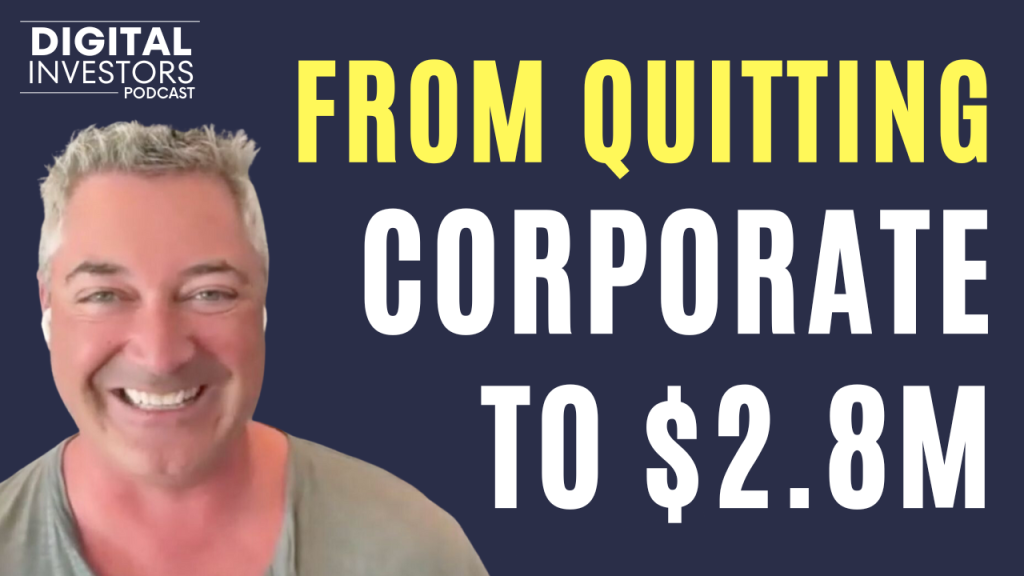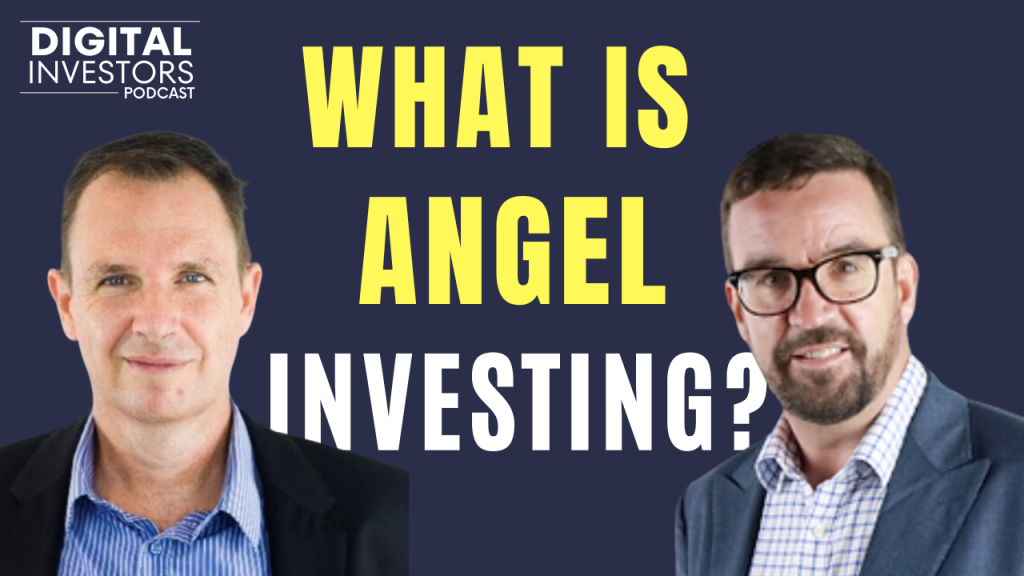What’s the future of content websites and how can you profit from them?
That’s what Joe Valley from Quiet Light Brokerage is going to share today.
Joe recently shared his insights at our Champions Bootcamp on the future of content websites over the next 5 years.
And because the insights were so valuable, I invited him back again today to share with our wider community.
You might be thinking of a 6-figure, 7-figure or even an 8-figure deal for your website portfolio. But do you actually know how much your website’s worth, or have an exit plan?
Most people don’t, so Joe lets us in behind the curtain of how his clients are achieving incredible results for their website portfolio business.
Watch the video, or read the transcript below to plan your next big website sale
Matt Raad: Hi again everyone, it’s Matt Raad here. I’m really excited to welcome back Joe Valley from Quiet Light website brokerage.
Joe is one of the co-founders of Quiet Light, and he’s got some fantastic insights that he shared at our recent Champions Bootcamp event. I’ve asked Joe to come back and share with our wider Digital Investor community some of the updates that are happening out there in the marketplace with buying and selling websites.
But in particular, we’re going to look at what we teach here at eBusiness Institute, content websites. We’ll look at some of the biggest sales Joe has seen happen recently and some of the trends in that marketplace.
So thanks Joe, for coming back and doing this interview.
Joe Valley: Good to be here. Thanks for having me back. I appreciate it.
Matt: We had a great weekend at the Bootcamp recently. The feedback on your session was awesome. Everyone loved hearing some of these insights.
It was a fantastic session to hear. I think it really opened the eyes for some of our students; as you saw at our event, a lot of our community are building these content sites because they’re a pretty simple site to build, as opposed to eCommerce websites.
Quiet Light turned over $210 million in website sales in 2021
Matt: So, I was thinking – can we kick it off with what’s been happening in the marketplace over the last 10 years? Let’s do a quick update.
I’m looking back over Quiet Light, at the sort of deals you’re doing 10 years ago. Fast forward to now into 2022, and particularly with what happened last year. Can you give us a bit of an update there?
Joe: Absolutely. In April of 2012, I started doing what I’m doing here at Quiet Light. I sold my own eCommerce business.
In late 2010, I took a year off and joined the team in 2012. If I look back to 2013 (my first full calendar year), I closed 23 transactions personally, which is nuts.
The average advisor does 10. But I was able to do it because many of them were so much smaller. The average deal size back then might have been $125,000. Some of them were as low as $5,000. So, turning them over and doing them quickly was much easier back then.
Fast forward to 2021, our average or median deal size was $1.8 million. Insane. We were set to close just under $250 million in total transactions, $40 million of it got bumped to Q1 of this year in 2022. So, we did about $210 million in total transactions, with a median deal size of $1.8 million. That’s really stunning.
Matt: Wow. That is stunning growth for any industry.
Quiet Light has grown its sales over the last 10 years by 10x
Matt: So, you started back then, but how many brokers do you have on board at Quiet Light now?
Joe: Back then, it was Jason Yelowitz, who’s the original entrepreneur, turned advisor. That’s the model we have here. Jason was my advisor back in 2010. Then I joined the team, and Amanda joined shortly after that. We putted around for a few years and then hit the gas in 2015 and 2016.
Fast forward again to today; we’ve got a total of 15 advisors that are on the team now. And I think six of them joined in the last 15 months. So, it’s been a hectic 15 months or so.
Matt: So, massive growth, particularly in this last couple of years. But basically, everything is 10x. So, your average website deal closed, going from around that a $100K up to $1.8 million now.
I’ve noticed when we look on the Quiet Light website, (which we suggest all our readers go and have a look at it), it’s pretty impressive. You’ve got multiple websites for sale that are way bigger than $1.8 mil. There’s a couple of $20 mils and $15 mil deals now.
Joe: Yeah, it’s kinds of nuts.
Selling Content Websites for $9 million with Quiet Light Brokerage
Matt: I know you said the median is $1.8 mil, but you do have quite a few bigger than that.
Joe: The largest we’ve closed to date is $25 million. We did a couple of deals in that range. Today, I was on an evaluation call where somebody’s doing $13 million in discretionary earnings.
Matt: I have to ask. What sort of a website?
Joe: It’s a physical products business. It’s actually an Amazon business.
Matt: So it’s an e-commerce site? For $13 mil?
Joe: Yes, $13 mil. So, we’re talking easily a $100 million in that particular transaction if we take it on.
Matt: Wow.
Joe: Content site-wise, the largest that we’ve closed is Victors. That was just under $9 million, which is still the record today.
Why Joe Valley loves Content Websites
Joe: I love content sites. Our team loves selling content sites. It’s such a difference between content and eCommerce.
When somebody fills out the valuation form, and we look at it, it says, “What’s your revenue, million dollars? What niche are you in? Amazon or eCommerce?” We know that maybe 20% discretionary earnings.
If they’re doing a $1 million, they maybe do $200,000 in discretionary earnings. When it’s content, we know it’s at least 80%. So if they’re doing $1 mil in revenue on content, it’s 80%.
And they don’t last; buyers really love them. We always get multiple offers on the content sites.
Matt: For all our readers, that is brilliant right there. Because for a minute, Joe, you nearly proved me wrong again. I had myself vaguely doubting myself.
I’m hearing $13 mil discretionary earnings, and it’s an Amazon FBA. I’m trying to think eCommerce. I’m thinking, “Should I be teaching people how to do that?” But we don’t do any of that.”
Joe: It’s a food blogging site. They’re just working on recipes.
Matt: That’s what we want.
Joe: No, I’m kidding. Not at all. Don’t want to prove you wrong.
Joe learned the value of good quality content over 10 years ago…and Google still rewards him for it
Matt: We’ll keep it simple like we’ve always done. Because eCommerce is your background, isn’t it?
Joe: Technically, it is, but I built my eCommerce site off the back of content.
We’ll keep this short. We won’t go too far into the weeds here. But I had a colon cleansing product that I sold on radio, then a TV infomercial. And I figured I’d take it 100% online, and my website developer said, “Just write good quality content”. I said, “David, it’s a colon cleansing product. How much can you write about that?”
We morphed it into a digestive wellness centre. So supplements, probiotics, digestive enzymes, a complete vitamin line and everything.
So, he said, “Just write good quality content. Google will reward you.” I didn’t know how to cheat. I didn’t know black or grey hat SEO.
That’s all we did over five years. We wrote good quality content, 1-2 lengthy articles on all the digestive elements every month. By the time I sold it in 2010, Google did reward me. So yes, it was eCommerce. But built on the back of content.
Matt: That’s really fantastic advice there. Back then, it was easy for people to understand content sites, and it’s low risk for them too, particularly if you’re a beginner.
“If you want to make money online, I think content sites are the easiest way to get into this game.” – Matt Raad, eBusiness Institute
And then to hear stories, like yourself now 10 years later, and see this market grow and realize, “Wow, there are big exits for content sites. They’re not just something small.”
Lisa purchased a content site for $2,000 is now valued at over $1 million!
Matt: At the Bootcamp, we shared a great example of Lisa, one of our students. You met her; she bought that little basic Amazon review site. This is a review site she bought for $2,000 and was making $200 a month.
And now, she’s built it up to $30,000 to $35,000 in monthly income. So, as a broker, how would you value that, based on those 80% or 20% discretionary earnings?
Joe: Now, you’re asking me to do maths, so I will bring up the calculator.
If she’s doing $35,000 a month, if that was annualized, we’re looking at $420,000 x 80% x (let’s just say a broad range) 3-4 times. Let’s put it right at 3.5. I’d say she’s at $1.176 million in terms of value.
Matt: There you go.
Joe: Especially because of the kind of growth that she’s had, she’s doing it right. She’s adding good quality content regularly. And she bought it, right?
Matt: Yes.
Joe: I mean, $200 a month, $2,400 a year, yet she bought it for $2,000. That’s less than a one-time multiple.
She had instant equity when she bought it. She didn’t know it, but good for her to keep it and grow it the way she has.
Matt: She bought the site three or four years ago, before COVID. Lisa is very driven and very consistent. She wanted to learn how to buy passive income websites, and she just stuck at it. She actually learned on another smaller site, and it worked, so she’s just applied it to that one.
Joe: I think that’s what you teach. That’s the key to content. You have to stick with it.
It’s not instant gratification. You can’t buy media, drive traffic, and generate sales immediately like you could on Amazon or Shopify stores.
This is building good quality content over time and getting rewarded.
Matt: That’s an excellent point, actually. Thank you because I take this for granted.
Good quality passion websites are selling for multi-millions
Matt: Obviously, we say it’s not a get rich quick thing. Can I ask you, in just general broad stroke terms, say for some of these really big content sites that you’ve sold; how old are they generally? Not how old are the owners, but how old are the websites in general when you get into a seven-figure content website sale?
Joe: I don’t have the exact statistics, but we talked about one on our last call. It was a 12-year-old content site in the food and recipe niche, with tremendous growth over the previous three years. So, I think they probably messed around for a long time. But, it looks like it sold for about $4 million.
They dabbled in it and then got serious like Lisa is. They really started to write good quality content regularly and really started to monetize the site.
Matt: We’re really big on teaching that to people – life is like a graph.
Liz and I studied zoology at uni, and we learned about the exponential graph. And we found with websites, especially with content sites, because you’re doing SEO, a lot doesn’t happen at first, and then it suddenly starts to take off.
Do you want to be an Acquisition Entrepreneur or build Passion Websites?
Matt: So, even with these big multimillion-dollar sites, would you say they’re typically driven by passionate people? Is it their personal passion sites?
Joe: For the most part, yes. Unless you’re an acquisition entrepreneur like Lisa, where she bought it and then she’s building it.
Victor, who we talk about, bought every one of his content sites, and then built them up and sold them. My wife has a content site out of passion; it’s a subject that was near and dear to her heart. So, she writes on it regularly.
For the most part, if it’s something you’re passionate about, yes. But if you’re an acquisition entrepreneur, it’s a different story altogether.
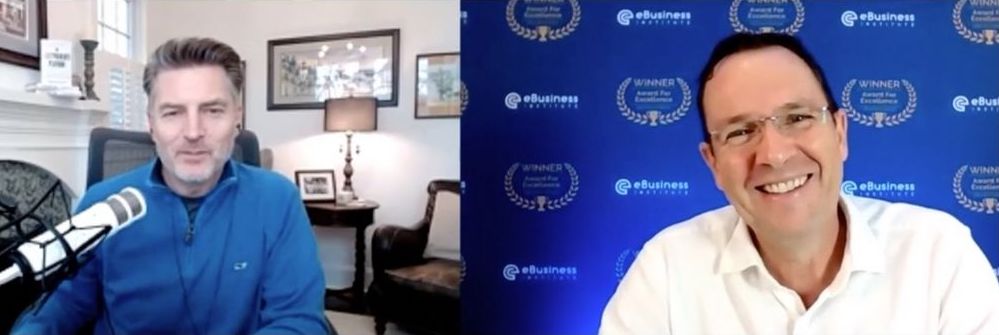
Joe Valley’s standout niche pick for 2022
Matt: Are there any standout niches, or are they just weird and wonderful topics? What do you see working in getting into the seven-figure stuff? Can you give us any clues there, Joe? What are you allowed to say there?
Joe: They’re all weird and wonderful. Let’s put it that way.
If you build it right, there will be a buyer for it. If it’s trending in the right direction, if the risk is low, if the growth is strong, if it is 100% transferable, and if you document the financials (and all the data and the SOPs that you do), it’s a sellable business.
And they’re all weird and wonderful; as I look over here at things that sold recently, we’re talking about Jazz lessons, food recipes, food recipes again, guns, celebrity style, watercolour paintings, jobs and portfolios, and things of that nature. It’s all over the place.
People always ask, “What niche always stands out where you get more offers than anything else?” For me, it’s always pets. It’s always dogs and cats and animal-related stuff. There’s such a passion for it that the highest multiple we had last year of any listing was from a pet-related business.
Matt: Wow. And I guess, especially with COVID, we’re reading that pets are the new kids. It’s become even bigger now.
Joe: And they cost a lot of money!
Matt: That’s true.
Joe: I have two of them.
Why picking the right micro-niche in a scalable market can lead to a 7-figure payout!
Matt: I guess with niches, you mentioned watercolour painting and hunting. I would imagine that hunting would be an absolutely awesome niche in America because that’s worldwide. But particularly in countries like Australia and America and Canada, that would also be an evergreen niche. We already have a few clients in that space.
Joe: Yes. It could be just about anything.
Matt: It doesn’t matter.
Joe: It really doesn’t. You just want to make sure it’s a niche that would be big enough. You can’t do something in such a small market. It’s never going to get very sizable if that’s the case.
Matt: When looking at building a content site for a multimillion-dollar exit, we’ve got to have enough time to do it. You can’t easily short circuit that unless you’re like Victor and an Exitprenuer.
In your bestselling book The EXITprenuer’s Playbook, you keep buying, flipping, and getting bigger deals. Victor did it in five years, didn’t he?
Joe: Yes. But he went from pretty much flat broke, single dad, to almost an eight-figure exit in around seven years.
But the last one he sold, he had for less than three years before selling it.
It something that was incredibly scalable. It was content, but it was voraciously posted daily and absorbed by the audience. It was in the soap opera niche, so the audience were just rabid fans.
Matt: Talk about weird and wonderful niches. You would never pick that.
So, in my opinion, especially for a beginner – they still need time because you’ve got to learn how to do it. But you need to be in a niche where there’s scope for lots of keywords and traffic. You don’t want to go too micro if you’re aiming at a significant multimillion-dollar exit.
Is your niche competitive? See why you shouldn’t fear big competition…
Matt: So, you proved me wrong again at our event, Joe! Recipe sites are something I’ve traditionally said to people in our community, “That that would be a challenging market because there is so much free info out there, and they’re huge.”
But I think one of the things you mentioned that resonated with our group is that you don’t have to be overly scared of competitive niches. You are seeing people in the content space still blitz it because there is scope for so much content there.
Joe: That’s right. And as I look over to my other screen on the content transactions that closed last year, every one of those niches was very competitive. Whether it’s celebrity-related, hunting-related, cooking-related, music-related, fitness-related, or painting, they’re all competitive.
It’s the people who had the “stick-to-it-iveness” or the tenacity that Lisa is showing – where she is doing it on a consistent, regular basis over time.
Today’s problem with most of us is we get “shiny object syndrome”. We get distracted and let it go because it didn’t provide instant gratification. That’s the challenge in today’s world.
Matt: That’s what we find. That’s our main job, and that’s why we love doing interviews like this with yourself, inspiring our readers to give it a go.
If you just stick at it, this works. You’ve got to have this long-term plan for content sites, and you do have to stick at it.
How you can still make a lot of money online with content websites without aiming for a 7-figure payout
Matt: So, within these niches, do people take a unique angle? When you mentioned the food blog, I think you were saying they did niche down within it. It’s not just always broad, is it?
Joe: In terms of low-cost meals or gluten-free cooking, it can get very niche-oriented. But look, I want to say something regarding these big content exits. Big is relative.
If somebody bought something for $2,000 and wants a $50,000 exit, that’s a huge win.
Matt: Absolutely.
Joe: That’s an incredible return on investment. You don’t have to have this $4 million, $1 million, $2 million, $3 million exit.
And I’m looking at the numbers over here. I also see $81,988. I don’t know how they came up with that price; there is actually 25 cents on there too, which is weird. But somebody sold something for roughly $82,000. That’s a big win for somebody. It’s all there, and big is relative.
“I don’t think people need to necessarily shoot for that seven-figure exit. They really need to shoot for an exit that’s going to work for them. You need to understand how long it will take, and that’s what your expertise is.” – Joe Valley, Quiet Light
But then, reverse engineering a path to that exit. If I want to sell for $1 million, how much do I have to have in discretionary earnings? Do you need to be where Lisa is at $35,000 a month in revenue? If it’s a content site do the math, it’s probably 80 to 90% profit. That’s a million-dollar exit all day long.
So, you’ve got to reverse engineer a path to the exit. Whatever your goal is, whether it’s five figures, six figures or seven figures.
Thinking like an EXITpreneur to establish your online goals
Matt: That just reminded me of something you shared on the weekend with our students. Reverse engineering that exit was another important aspect of goal setting. It’s not just about the numbers all the time, is it?
Joe: No. As entrepreneurs, if you’ve done this long enough, you will have really amazing years and some carry-forward loss years. It’s terrible to be excited about a carry-forward loss on your tax returns, but I’ve had years like that.
So, in the book, I talk about setting goals with dollars, dates, and feelings. And I think the feelings part is really critical.
I will sell my business for a $1 million in the third quarter of 2023 and when I do, I will feel unburdened because I’ll be out of debt. I will have money in the bank and get to take that two-month RV trip.
Be very specific like that with your goals, and it will help you achieve them.
Matt: That is such an important part of goal setting. It’s one of the things that Liz loves teaching too. She’s really big on getting people to think about their feelings for the goals that they’re striving for in life.
It’s interesting to hear it from you as an EXITpreneur. When it comes to selling your website, that’s a smart way to reverse engineer the exit.
When you’re planning it all out, think about the feelings you want to have when you get that six-figure or seven-figure exit.
How Joe used his goal-setting technique to finish writing his book
Joe: You need to share your goals with your colleagues or friends and make them hold you accountable.
I’ve wanted to write a book for a long time, but I never got off my ass to do it. I’d get started, but I wouldn’t finish it; it’s a lot of work.
And finally, I was sitting around a fire pit with some friends. I said, “Listen, I have an announcement to make. Bruce and Dana, I’m writing a book. I’m going to write a book, and it’s going to be done by X date, and I want you to ask me about it regularly.”
So, when they asked me, and I got nowhere, I thought, “I really have to get off my ass and do this”. And so, I would share your goals with people that will hold you accountable.
Studies have shown that you’re much more likely to be successful with your goals if you share them with somebody else. First, write them down, then share them with somebody else to hold you accountable.
Matt: That’s brilliant advice. Especially if you’ve got the big goal like building websites, and you’re in a safe community. In our community, you can chat with other like-minded people about what your goals are with your sites. It’s a fantastic bit of advice.
Joe Valley’s predictions for the next 5 years for Content Websites
Matt: So Joe, now that we’ve been through this amazing growth period, do you have any predictions for the next five years with content sites? Because people are committing to this for the next two, three, five years of their lives.
Joe: Well, if we (Quiet Light) have anything to say about it, the sell-ability of websites will get stronger and stronger and stronger.
The challenge sometimes is that people who own certain types of sites don’t realize they have a sellable asset. And we know that content sites are very sellable.
Most people think of eCommerce when they’ve got an online business. They’ve got physical products, and it’s a sellable business. There are also SaaS-based businesses.
But, we have an internal goal at Quiet Light to have content site sales grow dramatically over the next five years. If you looked back just a decade ago (2012), the average deal size was $125,000.
Could we even sell online businesses? What’s the risk here? Are they going to shut down the next day? What’s the multiple?
Now we’re all a little bit more mature. We’ve got some grey on the chin. If we look forward to five years, there are more mature people building good quality businesses that are going to hold more value in terms of the multiple and the size of the businesses.
Our transaction size has grown tenfold. And it’s not because we’re amazing. It’s because the businesses that we’re working with have grown up and grown in size as well, and I think that will just continue.
And I think that the contents part of it is going to accelerate a little faster than the eCommerce side of it, because I don’t think it’s caught up as much with the eCommerce site.
See why big corporates are now investing a lot of money into content sites
Matt: Awesome. So, you are seeing these corporates are now actively looking for good content sites as well?
Joe: When it comes to private equity firms that are dipping down into our space in the sub $25 million range, they’re dipping down into our area.
If they have a portfolio of eCommerce businesses selling grilling aprons and grilling accessories, wouldn’t it be great if they had content sites that would drive traffic to those as well?
The answer is yes. They’ve already started it out. The FBA (Fulfilled by Amazon) aggregators that are buying up these FBA businesses are not just buying those now. They’re already looking at content sites that can drive traffic through their stores as well. So, it’s just going to continue to grow, in my opinion.
If you’re thinking of selling your content site, here’s why you need to plan in advance
Matt: That’s a great opportunity. So, I want to say a big thank you for sharing such awesome insights here, Joe.
My advice for people reading this would be, if you are thinking of selling your content site (no matter what size it is), have a chat with the experts like Joe from Quiet Light well in advance.
Don’t wait for three years time or five years time. Get on the radar with a great website broker like Joe and start planning your exit now. Would you agree with that, Joe? Is it important to plan the exit at least a year out?
Joe: Oh yeah, I’d say 6-12 months out, you got to get the ball rolling.
Because otherwise, you’re going to wake up and decide to sell your business, you’re going to be emotionally tired, worn out, ready to sell.
And then, you’re going to have a call with somebody and they’re going to say, “This is great. You have all these strengths, but this weakness here is going to cut your multiple by half a point”.
If you’re doing half a million in discretionary earnings, then you’re going to lose $250,000 in a sale of your business.
If you want to wait another 6-12 months, we can fix that. And you’re going to be like, “Nah, I got to go. I’m tired.” So it’s best to plan this in advance.
Matt: And that’s what I like to encourage people to do. It’s awesome that you’ve done this interview for our community. And I would recommend you go and have a chat to Joe at Quiet Light about selling your website, or one of their team members. Just get in touch with Quiet Light.
Particularly, if you’re looking at doing one of those big exits, I reckon at 12 months out, have a chat and get your website prepared for sale well in advance. You’ve just heard it from Joe – it can make $250,000 difference to you.
And I’ve seen it many times where people suddenly decide they want to sell. They’re tired and they’ve had this vague plan that they want to exit. But when it comes time, they realize, “Ah, it’s not quite right, but I’ll just sell it anyway. I won’t wait around another 12 months”. And they’ve just done themselves out of six figures.
Joe: It’s no different than a house, right? If you’re going to sell your house, you’re going to fix it up.
You’re going to clean it up. You’re going to make it look nice. You’re going to paint certain rooms, neutralize it, get it ready so it’s easily transferable to a new owner and will appeal to the broadest number of buyers.
A business is a lot more complicated, and so, if you wait until the last minute, you can’t fix those things.
Matt: That’s right.
Claim your free EXITrepreneur digital book now
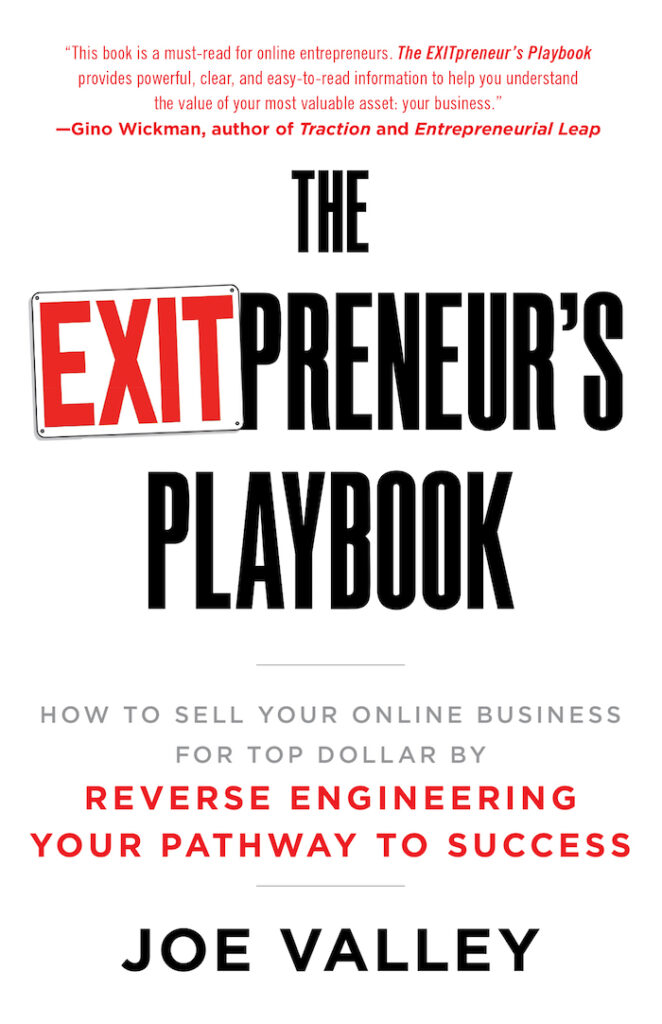
Joe: But let’s take it a step further. As you know, I’ve talked to 8,000 entrepreneurs one-on-one over the last decade, and we know that there are millions of them out there. So, there are lots of people that I haven’t reached.
There are people reading this thinking, “Yeah. Okay. I’m not ready to have that conversation with an advisor.” So, that’s why I wrote the book, The EXITpreneur’s Playbook.
And I want to go ahead and offer the free digital copy. It’s a real book. It has 300 pages of information on building and selling your business for maximum value.
I’ve always said that if I can give the digital copy away for free, I will and can. So, if your readers go to exitpreneur.io/ebusiness, they can download a digital copy of the book, read it on their Kindle or an iBook, whatever it might be.
Matt: Awesome, thanks Joe! How cool is that? For all our readers, make sure you get your copy. I highly recommend it because it lays out what you need to have in place when you come to sell your website.
I think it’s a fantastic resource. Even though a lot of us have already read or downloaded it, we need to get everyone reading it.
Joe: I can write it, but I can’t make them read it, right?!
Matt: No, that’s right.
Joe: They can choose to do what they want with it.
Matt: There’s some awesome advice in there.
And as always, I want to say a special big thank you, Joe, for coming along and sharing some very inspirational insights for our community.
It’s really cool for us all down here in Australia with eBusiness Institute, and our Digital Investor community to see that if we do want to do a big exit (7 or 8 figures), there’s a clear pathway over the next five years with these big content sites.
But as Joe said, even if you just want to sell your site for $50,000-$100,000, there’s an amazing opportunity out there with content sites. So, get out there, take some action. And a big thank you, Joe Valley, from Quiet Light.
Joe: My pleasure. Thanks for having me, Matt.

